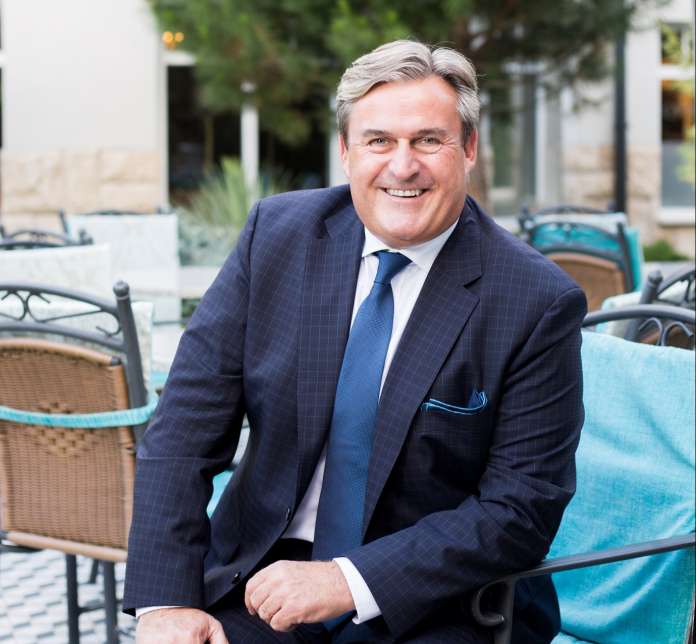With around 45,000 retail stations and a growing presence in terms of countries, customers and cities, Shell has learned a lot from both the challenges and the opportunities that the COVID-19 brought.
CEENERGYNEWS spoke with István Kapitány, Global Executive Vice President for Shell’s Retail business, about the company’s journey through the energy transition and how, especially in the retail area, it is important to have cleaner energy.
“There is no question that the COVID-19 pandemic has created challenges,” Mr Kapitány begins. “But despite this, we have kept delivering the energy that countries rely on.”
Shell’s offshore platforms and refineries have remained open through lockdown to supply energy to homes and businesses.
“We have also kept 99 per cent of our Retail stations open by mobilising our global teams to ensure that our retail sites are safe for both staff and customers,” he underlines. “To achieve this, our employees were truly heroic, to say the least, and I am very proud of them.”
Shell has learned a lot from both the challenges and the opportunities that came with the pandemic. For example, customers’ habits changed, thus Shell began selling more things like grocery items, sanitising products and toilet paper. Then it extended the range by partnering with home delivery companies to provide on-demand delivery in many countries such as UberEATS, Deliveroo and Foodpanda.
“Globally, we have implemented in-store signage and stickers on the floor to indicate distance required between customers,” Mr Kapitány recalls. “We have found that this not only provides guidance and comfort to customers but also reminds them of the other measures they should be taking such as wearing masks, hand washing and using sanitiser.”
“We had daily market sharing calls during the initial breakout, with over 150 attendees from more than 50 different countries sharing best practice and ideas on how to best support our customers and frontline employees,” he adds. “We have now kept this in place and are more connected than ever as a global retail community.”
While 2020 has been a turbulent year, Shell is an organisation that has robust foundations and a strong business model. Mr Kapitány is confident that it will continue to play a leading role in the energy transition and will maintain its leading position as the world’s number one mobility retailer. In fact, despite the major obstacles it has faced this year, it has managed to continue with its plans for expansion, opening 223 new retail sites in markets all around the world during the first half of 2020.

Courtesy of Shell.
“One of the greatest lessons we learnt from the initial COVID-19 outbreak in China is to be agile and adapt quickly to our customers’ needs,” Mr Kapitány highlights.
“As part of our growth plans, the customer will continue to always be at the heart of everything we do.”
Shell is also on its journey through the energy transition.
“It’s been predicted that by 2050 the global population could reach 9 billion people, which means a growing demand for energy,” István Kapitány says. “There is no single solution, but it’s in the interest of us all to work together to meet the Paris Agreement’s goals. All together meaning regulators, customers, institutions, companies and governments. As an energy company, we take our role very seriously.”
“Especially, in the retail area, it is important to have cleaner energy. We already have the infrastructure, so we need to accelerate the process of using alternative fuels like LNG and hydrogen for trucks.”
The Global Executive Vice President for Shell’s Retail business agrees that society needs to take urgent action on climate change and Shell is committed to playing its part by addressing its own emissions and helping customers to reduce theirs.
“Our ambition is to transform our business in step with society to become a net-zero emissions energy business by 2050 or sooner,” he reveals.
“We are the most trusted brand in mobility retail which is really important because it means people believe that we are contributing to the energy transition. We also care about the environment and one out of five customers in Germany and the UK use our nature-based solutions program to offset their emissions.”
Shell Recharge is Shell’s on-forecourt charging service providing access to over 500 charging points, at over 300 retail sites in 18 countries around the world including the UK, the Netherlands, Germany, Russia, China, Singapore, Hungary, Poland and Slovakia. By leveraging its existing network of over 45,000 retail sites, Shell can help grow the network of publicly available fast-charging points to support drivers when they need to charge on the move. Furthermore, Shell’s plan is to install hundreds of more charge posts at retail sites across the world over the coming years, aligning these with customers’ demands.
In January, Shell, in cooperation with IONITY, opened its first rapid EV charging station in Hungary, offering a charging rate of 350 kilowatt-hours. This translates to a charging time of around 5-7 minutes and many cars can use this to reach a range of over 500 kilometres, so the technology is already available for the long distance.
“After the station in Hungary, we launched one in Slovakia in June and we would like to continue with new locations along all the European motorways,” explains Mr Kapitány. “Ultimately, our goal is to allow customers to travel around Europe with zero anxiety regarding charging availability.”
According to him, EV charging stations will grow exponentially in the upcoming years.
“But we would also like to increase our biofuels sales,” he says. “In Hungary for example, 7-10 per cent of our sales are already biofuels. On the transportation side, hydrogen is not yet ready as an available solution but by the end of the decade, we can assume that a growing number of trucks will be using green hydrogen. Until this moment comes, we have a significant number of stations in Europe and Asia selling LNG which also has lower emissions.”



